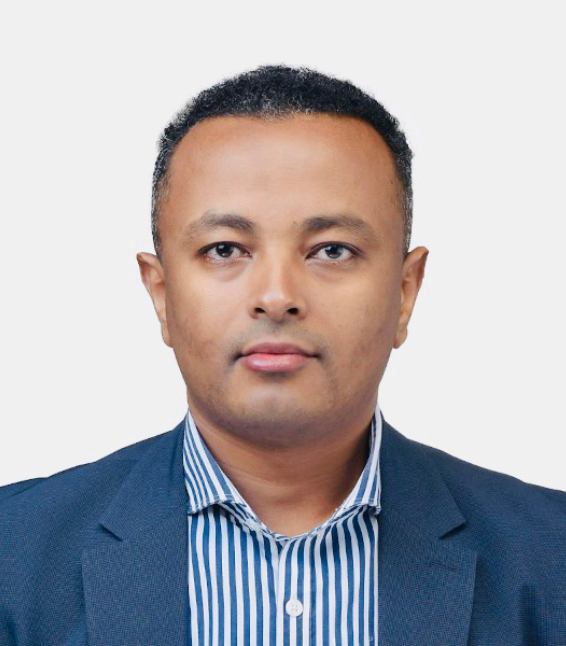Tekalign Debela
Tekalign Debela
Department of Chemistry
University of Oregon
Abstract
Defects in earth-abundant layered materials for energy applications
Defects in crystalline structures play a central role in today’s technology, affecting the efficiency and reliability of devices in a variety of applications. These imperfections are particularly important for solar cells, batteries, thermoelectrics, catalysts, quantum computers and many others. It is therefore crucial to study the effects of structural defects on electronic properties in order to develop an application-specific defect engineering strategy. In my talk, I will discuss my computational work on modeling defects in two-dimensional (2D) materials, focusing on their role in improving the catalytic performance of transition metal dichalcogenides (TMDs) for the hydrogen evolution reaction (HER). This work, largely based on experimental collaboration, explores different types of defects, including: chalcogen vacancies, metal adatoms and non-stochiometric defects in TMDs. In addition, I will provide insights into my recent studies on hydrogenic defects in conductive 2D metal-organic frameworks (MOFs). MOFs are usually formed by connecting organic linkers with metal ions to form a three-dimensional network. During this process, defects can occur that have a significant impact on their properties. In particular, I will discuss how the hydrogen interstitials and vacancies, a process that is not easily observed in experiments, can be manipulated to change the properties of this material. These hydrogen-induced defects in MOFs are likely to be widespread and can be strategically utilized to alter the overall properties of these materials. This knowledge opens up new possibilities in materials science, particularly in the development of materials with tailored properties for specific applications.
Tekalign Debela
Dr. Tekalign T. Debela is currently a Postdoctoral Associate at the University of Oregon, working in the groups of Prof. Christopher H. Hendon and Prof. Shannon W. Boettcher in the Department of Chemistry and Biochemistry. His research focuses on the application of density functional theory to unravel the mechanisms of water dissociation at metal oxide/water interfaces and on the modeling of defects in metal-organic frameworks (MOFs). From 2017 to 2021, he was a research professor at Jeonju University, South Korea, where he focused on the computational design of layered materials for energy applications as part of the “Brain Pool” fellowship. Dr. Debela obtained his PhD in Materials Science and Engineering from Zhejiang University (China) in 2014. As part of his doctoral studies, he worked intensively on molecular dynamics simulations, particularly the study of nucleation and crystallization processes in metallic melts. His education began in Ethiopia, where he earned a BSc and MSc in Physics from Arba Minch University and Addis Ababa University, respectively.
Hosted by Professor Ilja Siepmann
